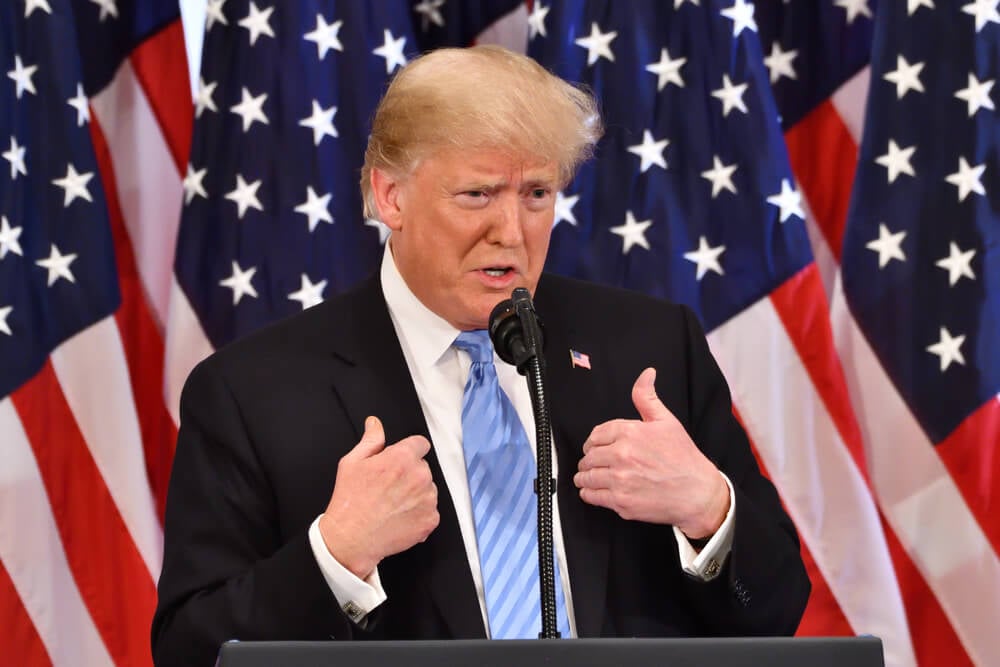Until a few days ago, TikTok's chances of avoiding a ban in the US looked slim, but political and legal twists give the company a good chance of surviving a ban initiated by the outgoing administration of President Joe Biden.
The Supreme Court accepted the company's emergency application this week and has scheduled a hearing for 10 January at which the parties to the dispute will present their arguments.
The Supreme Court's swift response to TikTok's application suggests that the giant video-sharing app can hope for a favourable outcome for the drama, which has even threatened its closure in the US.
Those hopes were dashed when a federal appeals court recently upheld the government's arguments that TikTok's activities in the US pose a risk to national security, given the Chinese ownership of the company.
Bipartisan political action in the US Senate followed the convening of oral argument before the Supreme Court. Last Friday, senators Ed Markey (D-Mass.) and Rand Paul (R-Ky.) asked President Biden to extend by 90 days the deadline for the company to get rid of the disputed part of the Chinese ownership and thus avoid a ban in the US.
Time is pressing for a decision
The odyssey surrounding the suspicion that TikTok poses a risk to US national security has been ongoing for several years now. The outcome will be known in just a few days, coinciding with the days of the transfer of power by the current and future US presidents.
This adds a distinctly political context to the entire story, raising the possibility that political interests—and less commercial and security ones—will decide the fate of the popular app, which has 170 million users in the US.
The senators' letter exerts significant pressure on President Biden to accommodate TikTok, presenting him with practical issues that could arise from the law he introduced.
“The stakes here are high: As a practical matter, even if the Court rules that the law is constitutional by the January deadline, ByteDance cannot divest TikTok in that limited time,” stated Senators Markey and Paul.
The fateful day for the popular app and its owners comes just one day before the inauguration of new President Donald Trump
In response to President Biden's decision, the US Congress passed a law last April requiring TikTok to sell its shares to non-Chinese companies by 19 January 2025 or risk losing its ability to conduct business in the US.
This fateful day for the popular app and its owners comes just one day before the inauguration of new President Donald Trump and the official departure of Joe Biden from office.
Changing political context
Everyone who has decided the fate of TikTok so far is aware of this fact. The list is extensive, including courts such as the Supreme Court, the Department of Justice, past and future administrations, and the US Congress.
They all continued in the same direction until this week, when the network's Chinese owners received instructions to divest their Chinese shares in order for the network to survive in the sizable US market.
“Given TikTok’s broad reach within the United States, the capacity for China to use TikTok’s features to achieve its overarching objective to undermine American interests creates a national-security threat of immense depth and scale,” the DOJ announced last July in its opinion to the federal appeals court hearing the case, which TikTok will ultimately lose in early December.
The inauguration of Donald Trump introduces a completely new context within which the institutions should make decisions regarding the Chinese-owned platform
However, the inauguration of Donald Trump introduces a completely new context within which the institutions should make decisions regarding the Chinese-owned platform.
Although he personally advocated a ban on the platform in the US during his first term as president and even issued an executive order to that effect, Trump changed course during this year's election campaign when he realised that TikTok had contributed to his victory.
"I have a warm spot in my heart for TikTok," he said last week. More importantly, CBS News reported that he met with Shou Chew, TikTok's CEO, at his Mar-a-Lago estate in Florida on the same day.
Who does TikTok trust?
Many eyes are on the decision of the Supreme Court, which has several options after the hearing scheduled for 10 January. The Supreme Court may decide to temporarily block the enforcement of the law banning TikTok until the resolution of the company's appeal, providing TikTok with crucial months to resolve the issue.
 If he insists on his newfound preference for the Chinese-owned platform, Trump will have to explain how this exception fits into his overall policy of confronting China
If he insists on his newfound preference for the Chinese-owned platform, Trump will have to explain how this exception fits into his overall policy of confronting China
Many of the mechanisms for decision-making will also be in Trump's hands when he assumes the presidency on 20 January. He will be able, like Joe Biden now, to give the owner of TikTok an additional 90 days to find a buyer or simply delay the implementation of the law through bureaucratic means.
While he has the technical options to keep TikTok alive, Trump's decision is primarily a political one. If he insists on his newfound preference for the Chinese-owned platform, Trump will have to explain how this exception fits into his overall policy of confronting China as the greatest economic and security threat to the US.
ByteDance, the parent company of TikTok, has repeatedly emphasised that it will not accept the sale of its stakes under pressure from US authorities. However, a possible extension of the deadline for this decision and, above all, the arrival of a more favourable partner at the White House who is inclined to make deals may change the owner's attitude.